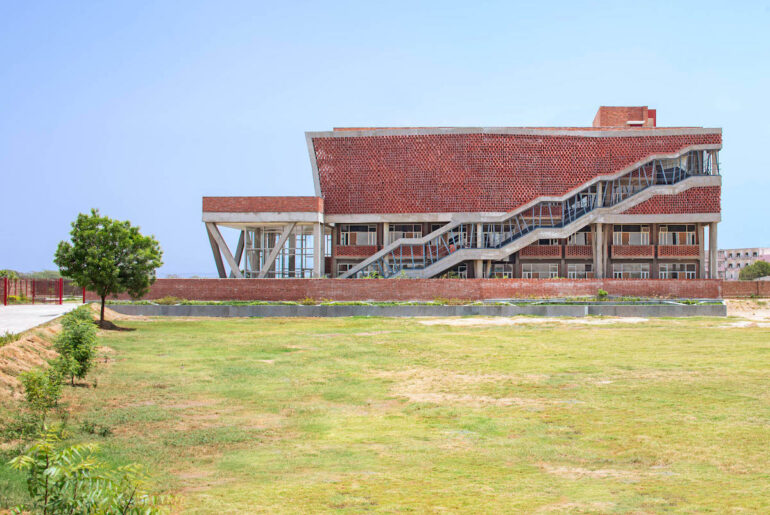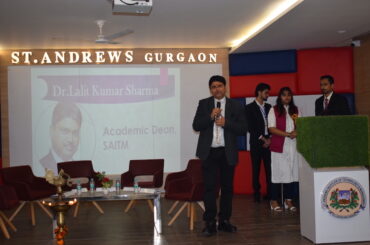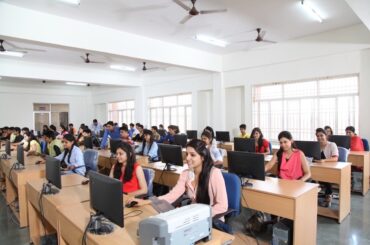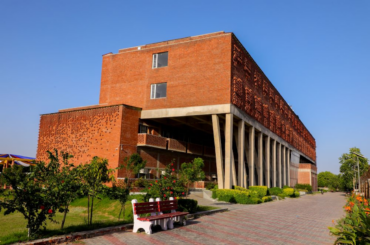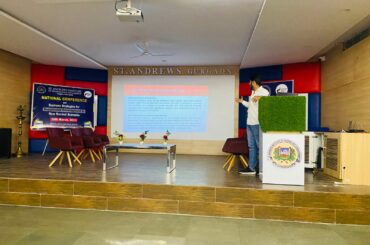MCA Entrance Exam
The MCA Entrance Exams are competitive tests designed to determine the suitability of candidates for the MCA program offered by numerous universities and institutions across India. These exams generally assess a candidate’s proficiency in mathematics, logical reasoning, and computer awareness, along with sometimes testing general English skills. The MCA Entrance Exam Syllabus forms the basis for this evaluation.
Key Points:
Purpose
To secure admission to MCA course in reputed colleges and universities.
Common Subjects Tested
Mathematics, logical reasoning, computer awareness, and English language skills.
Popular Exams
Some of the most recognized MCA entrance exam include NIMCET, MAH MCA CET, IPU CET, TANCET, and BHU PET.
Some of the most opted courses in India and St. Andrews college or different Engineering college or Management colleges are as follows:-
- Btech
- Btech CSE
- Btech ETCE
- MTech
- BCA
- BBA
- MBA
- MCA
- DPharma – St. Andrews College of Pharmacy
- BPharma – St. Andrews College of Pharmacy
- BArch – St. Andrews College of Architecture
MCA Course Overview
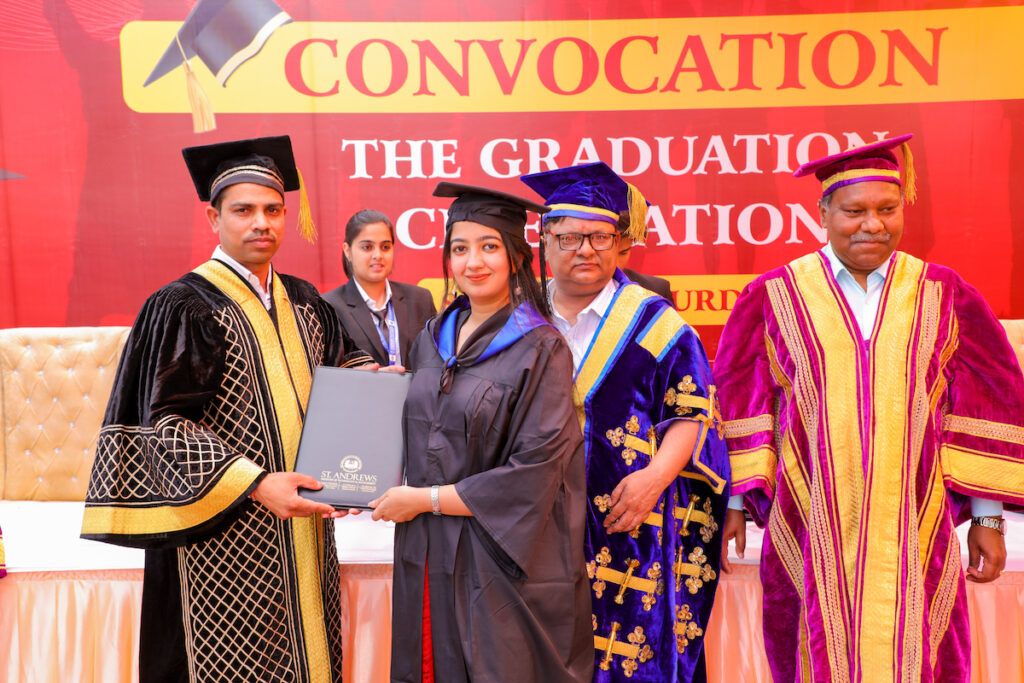
The Master of Computer Applications (MCA) is a specialized postgraduate program designed to meet the growing demand for qualified professionals in the field of computer science and information technology.
The program focuses on equipping students with a strong foundation in theoretical and practical aspects of computer applications, software development, and IT management.
Duration and Structure:
Duration: The MCA course typically spans 2 to 3 years, depending on the institution and the educational background of the student.
2-year MCA: For students with a BCA (Bachelor of Computer Applications) or a related degree.
3-year MCA: For students from non-computer science backgrounds but with a strong foundation in mathematics.
Semester System: The program is usually divided into 4 to 6 semesters, with each semester lasting about 6 months. The curriculum is designed to progress from fundamental concepts to advanced topics, culminating in a major project or internship in the final semester.
Core Subjects and Curriculum:
The MCA curriculum is comprehensive, covering a wide range of topics essential for a career in IT.
Here’s an overview of the core subjects:
Programming Languages:
C, C++, Java, Python: Students learn various programming paradigms, including procedural, object-oriented, and scripting languages. Emphasis is placed on problem-solving, algorithm development, and writing efficient code.
Database Management Systems (DBMS):
SQL, Oracle, MySQL: Courses in DBMS cover the design, implementation, and management of databases. Students gain hands-on experience with database systems, SQL queries, normalization, and database security.
Software Engineering:
System Design, Software Testing, Project Management: This subject focuses on the software development life cycle (SDLC), including requirement analysis, system design, coding, testing, and maintenance. Students are taught best practices in project management and quality assurance.
Web Technologies:
HTML, CSS, JavaScript, PHP: Web development is a crucial aspect of the MCA program. Students learn to design and develop dynamic websites and web applications, mastering front-end and back-end technologies.
Networking:
Computer Networks, Network Security, Cloud Computing: Networking courses cover the principles of data communication, network architecture, protocols, and security measures. Students also explore emerging trends like cloud computing and virtualization.
Mathematics for Computer Science:
Discrete Mathematics, Probability, Statistics: A strong mathematical foundation is vital for understanding algorithms, cryptography, and data analysis. Courses in mathematics focus on logical reasoning, combinatorics, graph theory, and statistical methods.
Operating Systems:
Linux, Windows, Shell Scripting: Understanding the functioning of operating systems is key to managing software and hardware resources. Courses cover process management, memory management, file systems, and security.
Elective Courses:
Depending on the institution, students can choose from a variety of electives, allowing them to specialize in areas like Artificial Intelligence, Data Science, Cybersecurity, Mobile Application Development, or Cloud Computing.
Specializations:
As the IT industry evolves, many MCA programs offer specializations that allow students to focus on specific areas of interest. Some popular specializations include:
Data Science: Focuses on data analysis, machine learning, big data technologies, and data visualization.
Artificial Intelligence: Covers AI algorithms, neural networks, natural language processing, and robotics.
Cybersecurity: Teaches ethical hacking, cryptography, network security, and information assurance.
Mobile Application Development: Focuses on developing applications for Android, iOS, and other mobile platforms.
Cloud Computing: Explores cloud services, virtualization, cloud architecture, and storage solutions.
Eligibility Criteria:
Academic Qualifications: To be eligible for the MCA program, candidates must have a bachelor’s degree in computer science, IT, or a related field. For students from non-computer science backgrounds, a strong foundation in mathematics is required.
Entrance Exams: Several institutions mandate that candidates pass entrance exams like NIMCET, MAH MCA CET, IPU CET, TANCET, among others. These exams test the candidate’s aptitude in mathematics, logical reasoning, and computer awareness.
Career Opportunities:
An MCA degree opens up a wide range of career opportunities in the IT sector. Graduates can pursue roles such as:
Software Developer: Designing, coding, and testing software applications.
System Analyst: Analyzing system requirements and designing efficient solutions.
Database Administrator: Managing databases and ensuring their security and performance.
Network Administrator: Managing and securing computer networks.
IT Consultant: Providing expert advice on IT strategies and solutions.
Cybersecurity Expert: Protecting information systems from cyber threats.
Top Colleges Offering MCA:
National Institute of Technology (NITs): Known for their rigorous curriculum and excellent placement records.
Delhi Technological University (DTU): Offers a strong MCA program with a focus on research and development.
St. Andrews Institute of Technology and Management (SAITM): Known for its industry-oriented curriculum and modern infrastructure.
MCA Eligibility Criteria
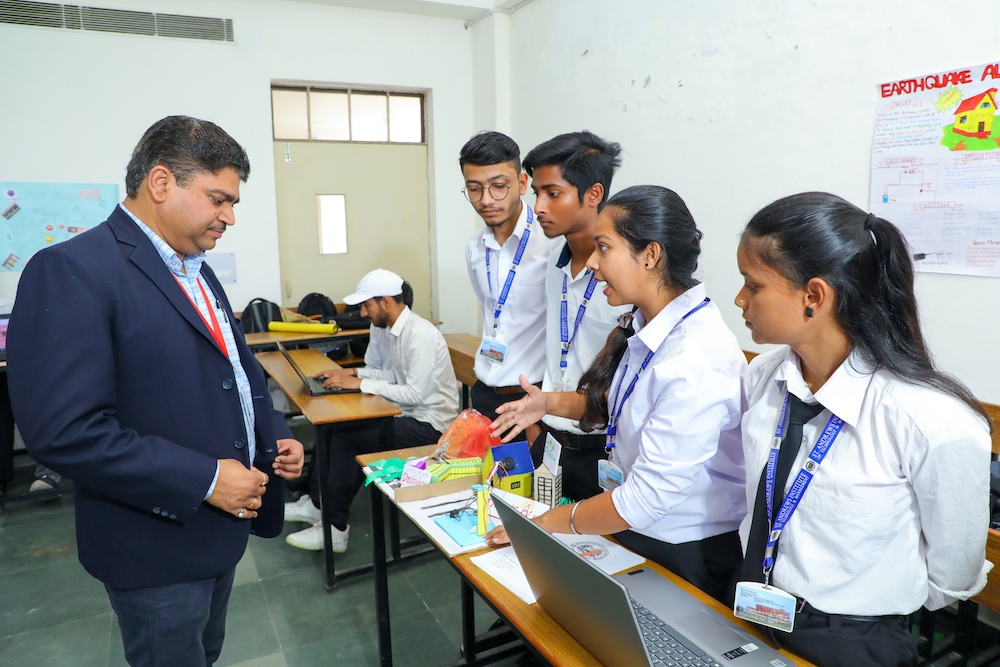
The eligibility criteria for pursuing a Master of Computer Applications (MCA) program in India generally include the following:
Educational Qualifications:
Bachelor’s Degree: Candidates must have completed a Bachelor’s degree in any discipline (e.g., B.Sc., B.Com., B.A.) from a recognized university it is important part of MCA Admission Process.
Mathematics Requirement: Candidates should have studied Mathematics as a subject in their 10+2 level or at the graduation level.
Minimum Percentage:
Candidates are typically required to have secured a minimum of 50% to 60% aggregate marks in their Bachelor’s degree, depending on the institution.
Entrance Exams:
Gaining admission to MCA programs typically involves passing national, state, or university-level entrance exams like NIMCET, IPU CET, MAH MCA CET, TANCET, among others. Understanding the MCA Entrance Exam Syllabus is crucial for success in these tests.
Reservation Criteria:
The minimum percentage required for reserved category candidates (SC/ST/OBC) may be reduced according to government regulations.
Duration of MCA:
The MCA program typically lasts for 2 years if the candidate has completed a BCA or equivalent, or 3 years for candidates from other backgrounds.
MCA Entrance Exam Pattern
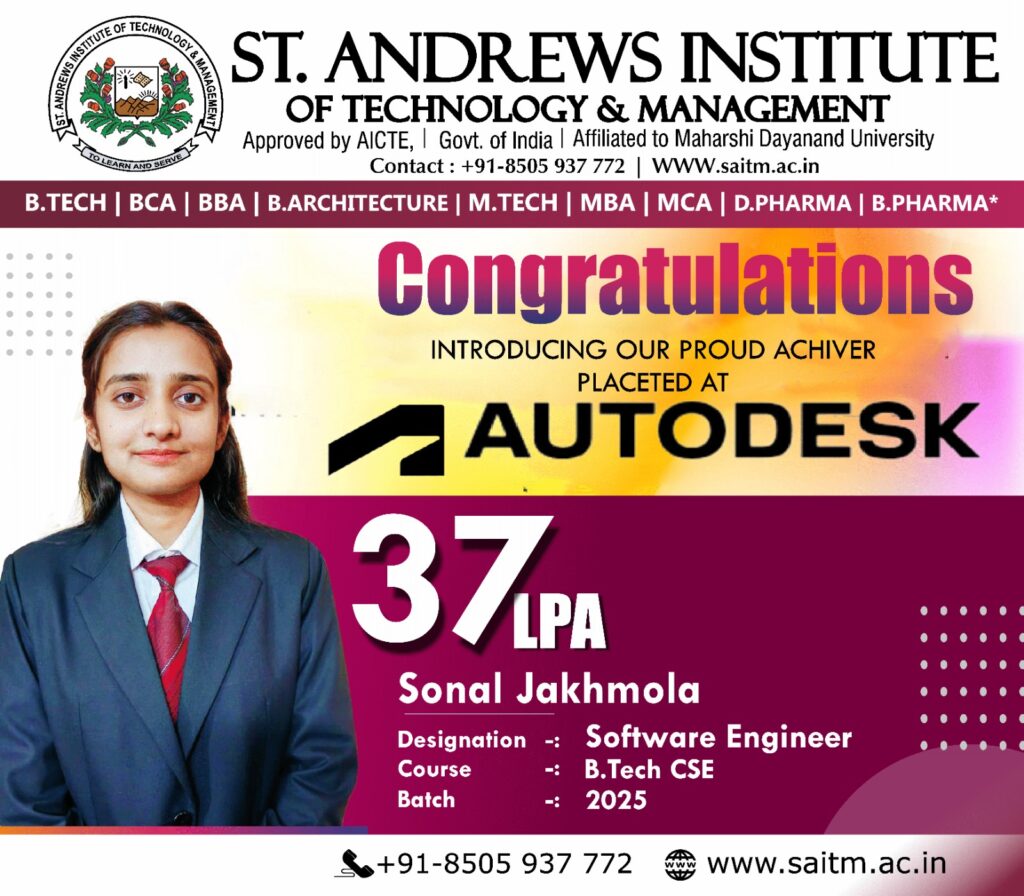
The format of the MCA (Master of Computer Applications) entrance exam can differ based on the specific exam and the institution administering it. Nonetheless, MCA entrance exams generally have common elements outlined in the MCA Entrance Exam Syllabus.
Here’s a general overview of the typical exam pattern:
Exam Structure:
- Type of Exam: MCA entrance exam is conducted as objective-type tests with multiple-choice questions (MCQs).
- Duration: The exam duration typically ranges from 1.5 to 3 hours.
- Number of Questions: The total number of questions usually ranges from 50 to 200, depending on the exam.
- Mode of Exam: Exams can be conducted in online (computer-based) or offline (pen-and-paper) mode.
Sections:
MCA entrance exam is generally divided into the following sections:
Mathematics:
- Topics Covered: Algebra, Calculus, Trigonometry, Probability, Statistics, Matrices, Complex Numbers, etc.
- Purpose: To assess quantitative and analytical skills.
Logical Reasoning and Analytical Ability:
- Topics Covered: Logical reasoning, Analytical reasoning, Data interpretation, and Problem-solving skills.
- Purpose: To evaluate the candidate’s ability to analyze and solve problems logically.
Computer Awareness:
- Topics Covered: Basics of computer systems, Operating systems, Programming languages, Software and hardware fundamentals, Computer networks, and Databases.
- Purpose: To test knowledge of fundamental computer concepts.
English Language:
- Topics Covered: Grammar, Vocabulary, Comprehension, Sentence correction, and Synonyms/Antonyms.
- Purpose: To assess proficiency in the English language.
General Knowledge and Current Affairs (for some exams):
- Topics Covered: Current events, General awareness, Basic general knowledge about India and the world.
- Purpose: To check general awareness and current events knowledge.
Marking Scheme:
- Scoring: Typically, each correct answer is awarded one mark.
- Negative Marking: Some exams have a negative marking scheme where a fraction of the mark is deducted for each incorrect answer. For example, 0.25 or 0.5 marks may be deducted per incorrect answer.
Sample Exam Questions of Popular MCA Entrance Exam:
Sample Question 1:
Question: Solve for xxx in the equation 2×2−3x−5=02x^2 – 3x – 5 = 02×2−3x−5=0.
Options:
- A) x=1 or −52x = 1 \text{ or } -\frac{5}{2}x=1 or −25
- B) x=52 or −1x = \frac{5}{2} \text{ or } -1x=25 or −1
- C) x=5±334x = \frac{5 \pm \sqrt{33}}{4}x=45±33
- D) x=3±414x = \frac{3 \pm \sqrt{41}}{4}x=43±41
Answer: C) x=5±334x = \frac{5 \pm \sqrt{33}}{4}x=45±33
Sample Question 2:
Question: A man is facing north. He turns 90° clockwise and then 180°. In which direction is he facing now?
Options:
- A) East
- B) South
- C) West
- D) North
Answer: B) South
Sample Question 3:
Question: Which of the following is the primary function of the CPU in a computer?
- A) Store data
- B) Perform calculations and execute instructions
- C) Manage peripherals
- D) Connect to the internet
Answer: B) Perform calculations and execute instructions
Sample Question 4:
Question: Choose the correctly spelled word.
- A) Definately
- B) Definitely
- C) Definatly
- D) Defenitely
Answer: B) Definitely
MCA Entrance Exam Syllabus
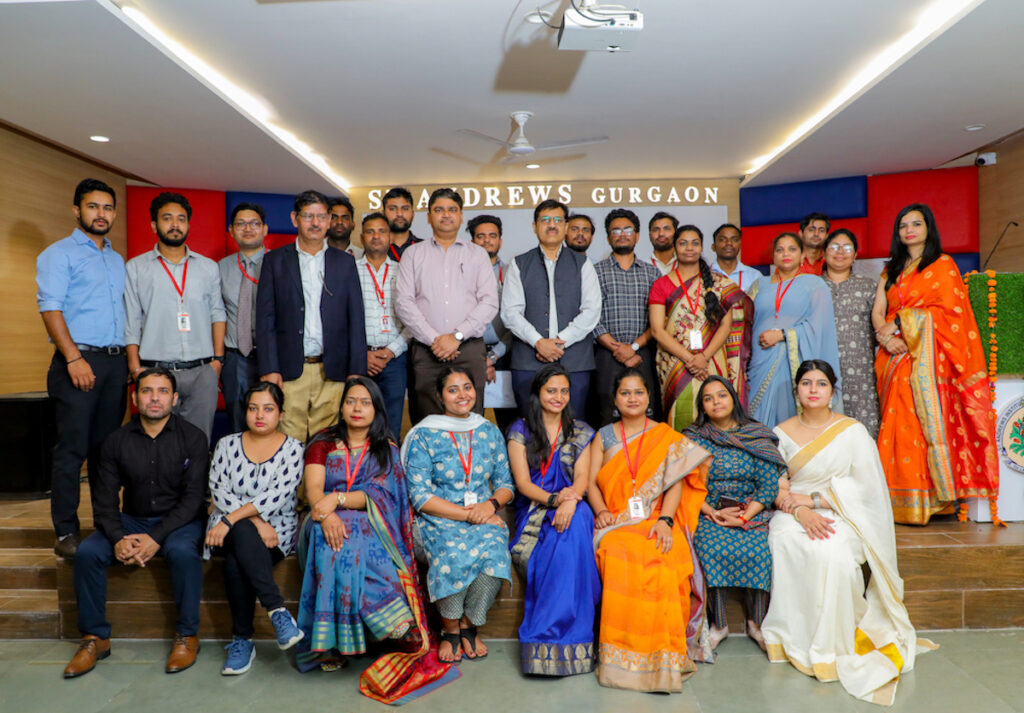
MCA entrance exam syllabus typically covers a range of topics that test candidates’ proficiency in Mathematics, Logical Reasoning, Computer Awareness, and English Language. Below is a general outline of the MCA entrance exam syllabus like NIMCET, MAH MCA CET, TANCET, etc.
Mathematics:
Algebra: Set theory, Boolean Algebra, Relations and Functions, Algebra of matrices, Determinants, Quadratic equations, Progressions (Arithmetic, Geometric, and Harmonic), Permutations and Combinations, Binomial theorem, homogenous linear differential equations.
Calculus: Limits, Continuity and Differentiability, Differentiation, Application of derivatives, Integration, Application of integrals, Differential equations.
Vectors and 3D Geometry: Vector algebra, Scalar and vector products, Equation of a line, Equation of a plane, Distance of a point from a plane.
Statistics and Probability: Mean, Median, Mode, Standard deviation, Random variables, Probability distributions, Conditional probability, Bayes’ theorem.
Trigonometry: Trigonometric identities, Heights and distances, Inverse trigonometric functions, Solution of triangles.
Coordinate Geometry: Straight lines, Circles, Conic sections, Pair of straight lines, Parabola, Ellipse, Hyperbola.
Logical Reasoning:
Number Series: Completion of numerical sequences.
Coding-Decoding: Understanding patterns in sequences of numbers, letters, or symbols.
Data Interpretation: Interpretation of data presented in tables, graphs, or charts.
Logical Puzzles: Arrangement, blood relations, and syllogisms.
Analytical Reasoning: Statements and conclusions, analogies, and classification.
Computer Awareness:
Basics of Computers: Computer architecture, memory, input-output devices.
Operating Systems: Functions of operating systems, types, and examples.
Data Representation: Binary, octal, and hexadecimal number systems; representation of characters and numbers.
Networking: Basic concepts of networking, types of networks, internet, and protocols.
Programming Concepts: Basics of programming languages like C, C++, and Java, flowcharts, and algorithms.
Database Management Systems (DBMS): Introduction to DBMS, basic SQL queries.
English Language:
Vocabulary: Synonyms, Antonyms, Word meanings.
Grammar: Parts of speech, tenses, sentence correction.
Reading Comprehension: Understanding passages and answering questions based on them.
Verbal Ability: Sentence completion, jumbled sentences, para jumbles, and idioms & phrases.
General Aptitude (for specific exams):
Some exams might include a general aptitude section that covers topics like general knowledge, current affairs, and basic financial or business concepts.
Eligibility Criteria for Top MCA Entrance Exams

The eligibility criteria for MCA entrance exam can vary depending on the specific exam and the institution offering the MCA courses.
However, the general eligibility criteria typically include the following:
Educational Qualifications::
- Bachelor’s Degree: Candidates must hold a Bachelor’s degree in any discipline from a recognized university.
- Mathematics Requirement: Candidates should have studied Mathematics as a subject in their 10+2 level or at the graduation level. Some exams specifically require Mathematics at both levels, while others may accept it at just one level.
Minimum Percentage::TANCET (Tamil Nadu Common Entrance Test)
- Candidates typically need to achieve an aggregate score of 50% to 60% in their Bachelor’s degree to qualify. Some institutions may offer relaxation in marks for reserved categories (SC/ST/OBC).
Nationality:
- Indian Citizenship: Most MCA entrance exams require the candidate to be an Indian citizen.
- Foreign Nationals: Some institutions may have provisions for foreign nationals, though they may need to meet different criteria.
Age Limit:
- Generally, there is no upper age limit for MCA entrance exams. However, candidates should check specific exam details, as some state-level exams might have an age limit.
Specific Exam Requirements:
- NIMCET (for NITs): Requires a minimum of 60% marks (55% for SC/ST) in B.Sc./B.Sc. (Hons)/BCA/BIT or a minimum of 60% in Engineering or Technology (B.E./B.Tech).
- MAH MCA CET (for Maharashtra colleges): Requires a minimum of 50% aggregate marks in graduation (45% for reserved category) with Mathematics at the 10+2 level or graduation level.
- TANCET (for Tamil Nadu colleges): Requires a pass in a recognized Bachelor’s degree with 50% aggregate marks (45% for reserved categories) and Mathematics as a subject.
Additional Criteria:
- Domicile Requirements: Some state-level exams may have domicile requirements where candidates need to be residents of the respective state.
- Work Experience: While not mandatory, some institutions may give preference to candidates with relevant work experience in the IT field.
State-Level MCA Entrance Exam List with Dates
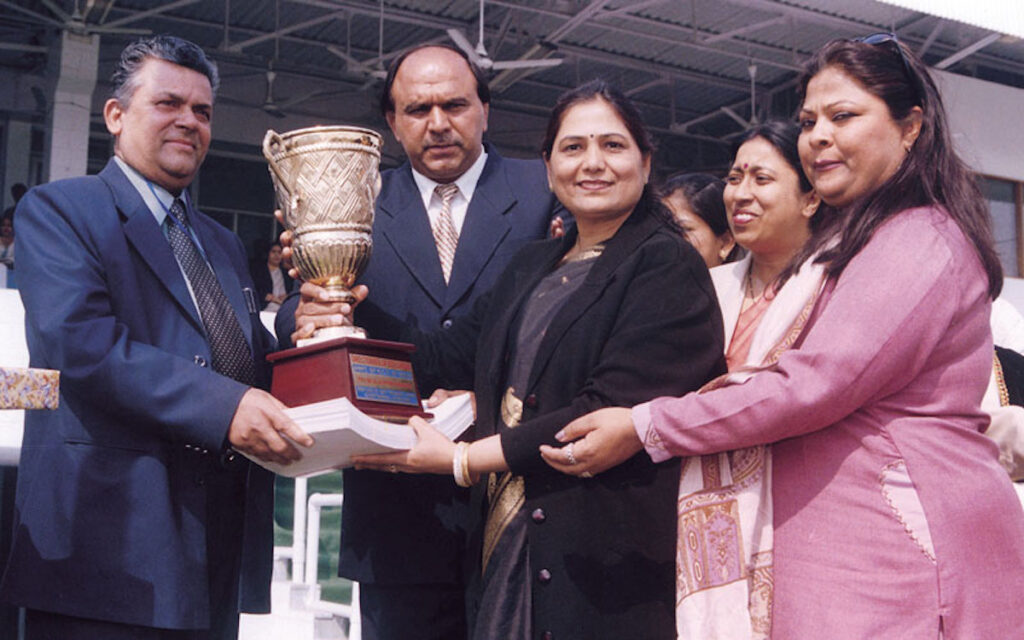
Here’s a list of popular state-level MCA entrance exams in India along with their typical exam dates.
MAH MCA CET (Maharashtra MCA Common Entrance Test)
- Conducting Body: State Common Entrance Test Cell, Maharashtra
- Exam Date: March
TANCET (Tamil Nadu Common Entrance Test)
- Conducting Body: Anna University, Tamil Nadu
- Exam Date: February or March
AP ICET (Andhra Pradesh Integrated Common Entrance Test)
- Conducting Body: Sri Venkateswara University, Tirupati (on behalf of APSCHE)
- Exam Date: May
TS ICET (Telangana State Integrated Common Entrance Test)
- Conducting Body: Kakatiya University, Warangal (on behalf of TSCHE)
- Exam Date: May
WB JECA (West Bengal Joint Entrance for Computer Application)
- Conducting Body: West Bengal Joint Entrance Examinations Board (WBJEEB)
- Exam Date: July
Karnataka PGCET (Post Graduate Common Entrance Test)
- Conducting Body: Karnataka Examinations Authority (KEA)
- Exam Date: July or August
UPCET (Uttar Pradesh Combined Entrance Test)
- Conducting Body: National Testing Agency (NTA)
- Exam Date: June or July
OJEE (Odisha Joint Entrance Examination):
- Conducting Body: Odisha Joint Entrance Examination Board
- Exam Date: May or June
HPCET (Himachal Pradesh Common Entrance Test)
- Conducting Body: Himachal Pradesh Technical University (HPTU)
- Exam Date: May
BHU PET (Banaras Hindu University Postgraduate Entrance Test)
- Conducting Body: Banaras Hindu University (BHU)
- Exam Date: May or June
KMAT Kerala (Kerala Management Aptitude Test)
- Conducting Body: Office of the Commissioner of Entrance Exams (CEE), Kerala
- Exam Date: July or August
RMCAAT (Rajasthan Master of Computer Applications Admission Test)
- Conducting Body: Rajasthan Technical University (RTU)
- Exam Date: August
Types of MCA Entrance Exams in India
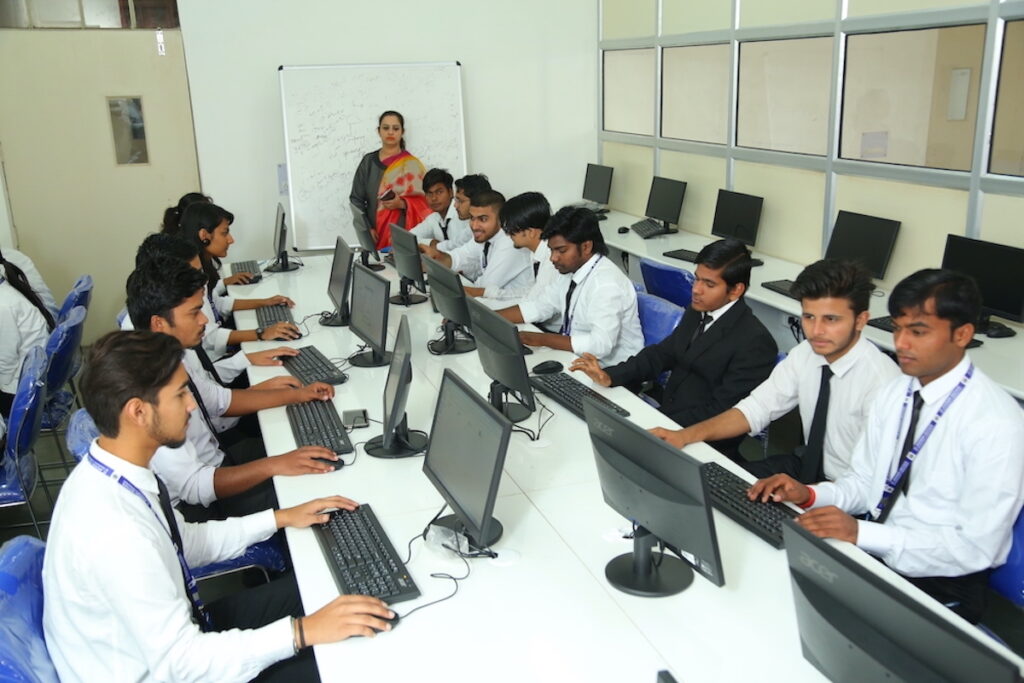
MCA course entrance exam in India can broadly categorized into three types based on the level at which they are conducted:
National-Level MCA Entrance Exam:
Purpose: These exams are conducted at the national level and have national importance. These are accepted by institutions across India.
Examples:
- NIMCET (NIT MCA Common Entrance Test): National Institutes of Technology MCA Entrance Exam Conducted by them for admission into MCA course offered by the National Institutes of Technology (NITs).
- CUET (Common University Entrance Test) for MCA: Conducted by the National Testing Agency (NTA) for admission to MCA programs in central universities and other participating institutions.
State-Level MCA Entrance Exam:
Purpose: These exams are organized by state governments or state-level bodies, and the scores are primarily used for admission into MCA programs within that particular state.
Examples:
- MAH MCA CET: Conducted by the State Common Entrance Test Cell, Maharashtra, for MCA admissions in Maharashtra.
- TANCET: Conducted by Anna University for MCA admissions in Tamil Nadu.
- WB JECA: Conducted by the West Bengal Joint Entrance Examinations Board for MCA admissions in West Bengal.
- AP ICET: Conducted by Sri Venkateswara University on behalf of APSCHE for MCA admissions in Andhra Pradesh.
- TS ICET: Conducted by Kakatiya University on behalf of TSCHE for MCA admissions in Telangana.
- Karnataka PGCET: Conducted by the Karnataka Examinations Authority (KEA) for MCA admissions in Karnataka.
- UPCET: Conducted by NTA for MCA admissions in Uttar Pradesh.
- OJEE: Conducted by the Odisha Joint Entrance Examination Board for MCA admissions in Odisha.
University-Level MCA Entrance Exam:
Purpose: These exams are conducted by individual universities for admission into their own MCA programs.
Examples:
- BHU PET (Banaras Hindu University Postgraduate Entrance Test): Conducted by Banaras Hindu University for admission into its MCA program.
- JNU MCA Entrance Exam: Conducted by Jawaharlal Nehru University for MCA admissions.
- Pune University MCA Entrance Exam: Conducted by Savitribai Phule Pune University for MCA admissions.
- AMU MCA Entrance Exam: Conducted by Aligarh Muslim University for MCA admissions.
- DUET (Delhi University Entrance Test) for MCA: Conducted by the National Testing Agency (NTA) for admission to MCA programs at Delhi University.
Admission to MCA Courses without Entrance exam
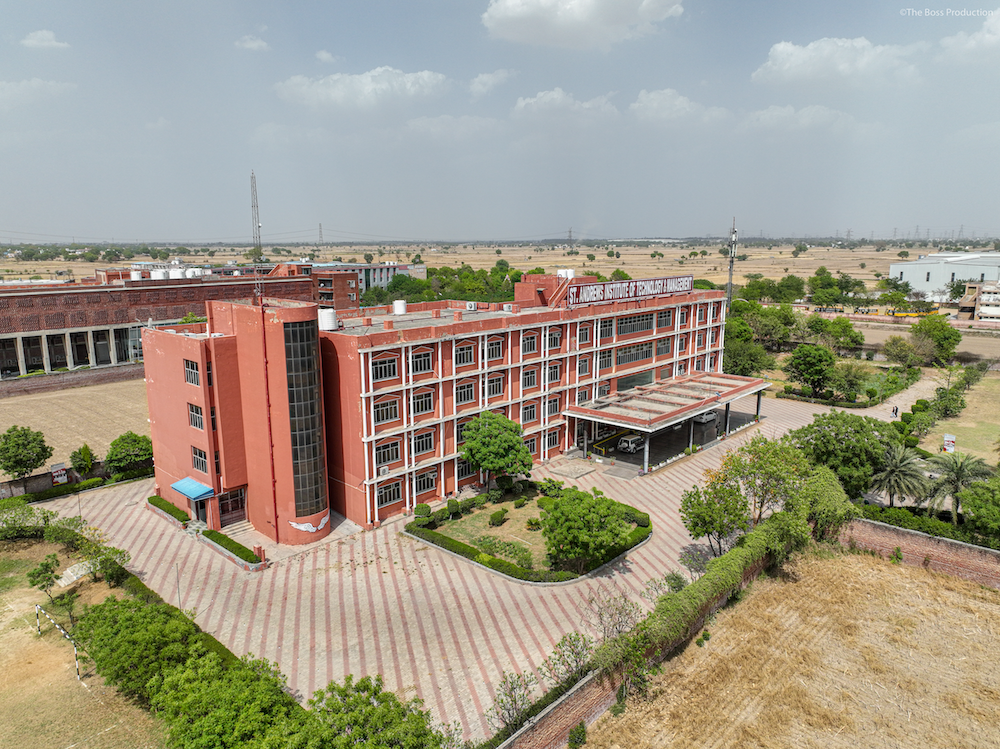
Some institutions in India offer admission to MCA (Master of Computer Applications) courses without an entrance exam, instead using a merit-based system. Here, candidates are selected based on their academic performance in qualifying exams, independent of the MCA Entrance Exam Syllabus.
Here’s how it generally works:
Direct Admission Based on Merit:
Criteria: Candidates are admitted based on their marks in the qualifying degree (usually a Bachelor’s degree in any discipline).
Minimum Percentage: Institutions may require a minimum percentage (e.g., 50%-60%) in the Bachelor’s degree.
Mathematics Requirement: Candidates must have studied Mathematics as a subject at the 10+2 level or during their graduation.
Management Quota:
Some private colleges and universities offer admission through management quota seats, which do not require an entrance exam. The admission criteria are similar to merit-based admissions, but the fee structure may be higher.
Institution-Specific Admission:
Certain private universities and colleges may conduct their own admission process, which could include an interview, group discussion, or assessment of academic records instead of a formal entrance exam.
Examples of such institutions might include private universities like St. Andrews College of Pharmacy (SACP), and others, where direct admissions are possible based on the candidates’ academic records.
Lateral Entry Admission:
Some institutions offer lateral entry into the MCA program for candidates who have completed a Bachelor’s degree in computer applications (BCA) or a related field. These candidates may be admitted directly to the second year of the MCA program, often without an entrance exam.
State-Specific Relaxations:
In certain states, especially during extraordinary circumstances (like the COVID-19 pandemic), state governments or universities might allow admissions without an entrance exam, based on merit in the qualifying exam.
Integrated MCA Programs:
Some universities offer integrated MCA programs where students can join after completing 10+2. These programs typically do not require an entrance exam, as students are admitted based on their 10+2 performance.
Top MCA Entrance Exams
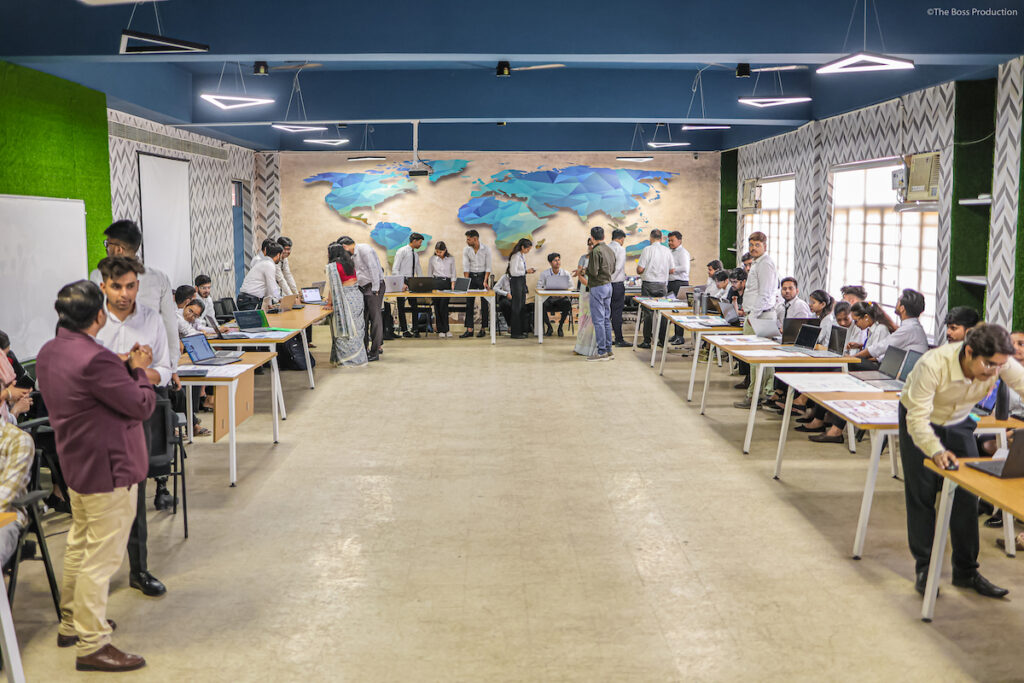
Here’s a list of some of the top MCA (Master of Computer Applications) entrance exam in India, which are widely recognized by various prestigious institutions:
NIMCET
Conducting Body: National Institutes of Technology (NITs)
Scope: Admission to MCA programs in participating NITs.
Importance: One of the most prestigious entrance exams for MCA, offering admission to top NITs across India.
MAH MCA CET
Conducting Body: State Common Entrance Test Cell, Maharashtra
Scope: Admission to MCA programs in government and private institutions in Maharashtra.
Importance: Key entrance test for MCA aspirants in Maharashtra, with widespread acceptance in the state.
TANCET (Tamil Nadu Common Entrance Test):
Conducting Body: Anna University, Tamil Nadu
Scope: Admission to MCA programs in Tamil Nadu’s government and private institutions.
Importance: Widely recognized in Tamil Nadu, it’s essential for those aiming to pursue MCA in the state.
CUET (Common University Entrance Test) for MCA
Conducting Body: National Testing Agency (NTA)
Scope: Admission to MCA programs in central universities and other participating institutions.
Importance: A comprehensive exam used for admissions in various central universities across India.
IPU CET (Indraprastha University Common Entrance Test)
Conducting Body: Guru Gobind Singh Indraprastha University (GGSIPU), Delhi
Scope: Admission to MCA programs offered by colleges affiliated with IP University.
Importance: Crucial for students seeking admission to MCA programs in Delhi.
BHU PET (Banaras Hindu University Postgraduate Entrance Test):TANCET (Tamil Nadu Common Entrance Test)
Conducting Body: Banaras Hindu University (BHU)
Scope: Admission to MCA programs at BHU.
Importance: Prestigious exam for those aspiring to join BHU, one of India’s top universities.
WB JECA (West Bengal Joint Entrance for Computer Application)::
Conducting Body: West Bengal Joint Entrance Examinations Board (WBJEEB)
Scope: Admission to MCA programs in West Bengal.
Importance: Mandatory for MCA admissions in West Bengal’s government and private institutions.
UPSEE (Uttar Pradesh State Entrance Examination)
Conducting Body: Dr. A.P.J. Abdul Kalam Technical University (AKTU), Uttar Pradesh
Scope: Admission to MCA programs in Uttar Pradesh.
Importance: Widely accepted by government and private institutions in Uttar Pradesh.
OJEE (Odisha Joint Entrance Examination)
Conducting Body: Odisha Joint Entrance Examination Board
Scope: Admission to MCA programs in Odisha.
Importance: Key entrance test for MCA aspirants in Odisha, covering numerous colleges in the state.
KMAT (Karnataka Management Aptitude Test)
Conducting Body: Karnataka Private Post Graduate Colleges Association (KPPGCA)
Scope: Admission to MCA programs in Karnataka’s private colleges.
Importance: Recognized by many private institutions in Karnataka for MCA admissions
FAQs
What is an MCA entrance exam?
An MCA entrance test is a standardized assessment used to determine a candidate’s suitability for MCA programs at various institutions. It typically measures expertise in mathematics, logical reasoning, and general awareness, all components of the MCA Entrance Exam Syllabus.
What are the eligibility criteria for MCA entrance test?
Educational Qualification: Typically, candidates must have a Bachelor’s degree in any discipline with a minimum percentage (often around 50-60%) from a recognized university. Some exams require candidates to have studied Mathematics at the 10+2 level or during their graduation.
Age Limit: Most exams do not have an age limit, but it’s always good to check specific requirements of each exam.
How can I prepare for the MCA entrance test?
Understand the Syllabus: Familiarize yourself with the exam syllabus and pattern.
Study Materials: Utilize standard textbooks and online resources that concentrate on mathematics, logical reasoning, and computer science fundamentals, aligned with the MCA Entrance Exam Syllabus.
Practice: Solve previous years’ question papers and take mock tests to improve your speed and accuracy.
Coaching Classes: Consider enrolling in coaching classes if you need structured guidance.
What subjects are typically covered in MCA entrance Exam?
Mathematics: Topics include algebra, calculus, coordinate geometry, and statistics.
Logical Reasoning: Includes puzzles, data interpretation, and logical sequences.
Computer Awareness: Basic computer fundamentals, programming concepts, and general IT knowledge.
General Knowledge: Some exams may include questions on current affairs and general awareness.
Which institutions conduct MCA entrance Exam?
National-Level Exams: NIMCET (for NITs), CUET (for central universities).
State-Level Exams: MAH MCA CET (Maharashtra), TANCET (Tamil Nadu), AP ICET (Andhra Pradesh), TS ICET (Telangana), etc.
University-Level Exams: BHU PET (Banaras Hindu University), IPU CET (Guru Gobind Singh Indraprastha University), etc.
How do I apply for an MCA entrance Exam?
Application Form: Obtain and fill out the application form from the official website of the exam conducting body.
Documents Required: Provide necessary documents such as educational certificates, identity proof, and passport-sized photographs.
Fee Payment: Pay the application fee as per the instructions provided by the exam authority.
When are MCA entrance Exam typically held?
Exam dates vary by exam. For example:
NIMCET: Usually held in May.
MAH MCA CET: Typically in March.
TANCET: Conducted in February or March.
Check the official websites for the exact schedule.
How are MCA entrance test scored?
Scoring Pattern: Exams are typically scored by counting the number of correct responses, and some exams implement negative marking for incorrect answers, a practice outlined in the MCA Entrance Exam Syllabus.
Result: Results are published online on the official exam website, and candidates receive their scores or rank.
What is the selection process after the entrance test?
Counseling: Based on the exam score, candidates are called for counseling sessions where they choose their preferred institutions and specializations.
Admission: Final admission is based on exam scores, counseling results, and institutional criteria.
Can I apply for multiple MCA entrance test?
Yes, candidates can apply for multiple entrance exams to increase their chances of admission to different institutions.

